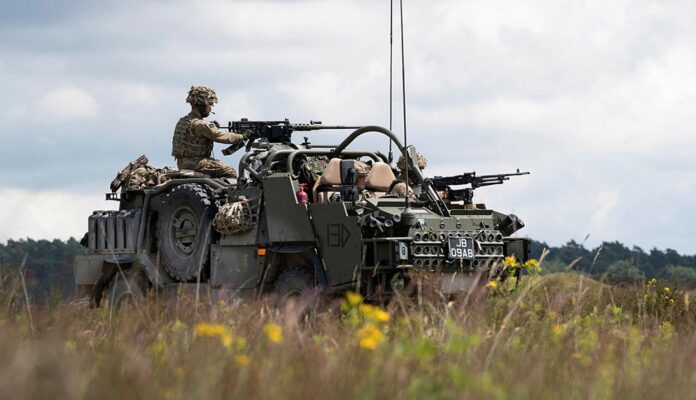
British Army commander of the Specialist Group Information Services, General Gary Munch, cast doubt on the armed forces’ retirement plan for specialist reserves with crucial skills, as the service continues to struggle with retention and recruitment.
The UK Armed Forces begin to retire reserve soldiers and officers at 55 and 60 respectively, Munch stated.
It should be noted that there is no age restriction, and people are able to continue to serve depending on their operational capability.
Not unlike withdrawing ageing warships after years of service, Munch described the retirement process to “decommission” personnel during a conference at the Royal United Services Institute on 4 December.
This plan is counter-intuitive, Munch suggested, given the need to retain skills that are already in short supply.
Parliamentary Undersecretary Al Carns opened the event with a sober assessment of the fatality rates among Russian forces against Ukraine, suggesting “Russia will soon turn to its third army.” The Ministry of Defence reported that the Russian rate has topped more than 1,500 losses per day in November.
As of April 2024, more than a quarter of the UK Regular Forces personnel were under the age of 25. The average age of officers was 37, while the average age of all other ranks was 30. The overall average was 31 years of age.
Ditch the ‘ad hoc’ mentality
There has been an enduring skills deficit in the West for some time, and this goes beyond the defence industry.
Despite this, officials are trying to expand its pool of reservists at a time when, it was agreed, the division between civil society and the military has never been wider. This, attendees also agreed, requires a pervasive cultural change nationally.
However, Commander of Strategic Command, General Sir Jim Hockenhull, observed that the HR systems were designed for another era.
“We have to find a way to systematise the approach to reservists not as an ad hoc response” to crises, he advocated. “We must view reservists as a strategic capability,” not an auxiliary force.



